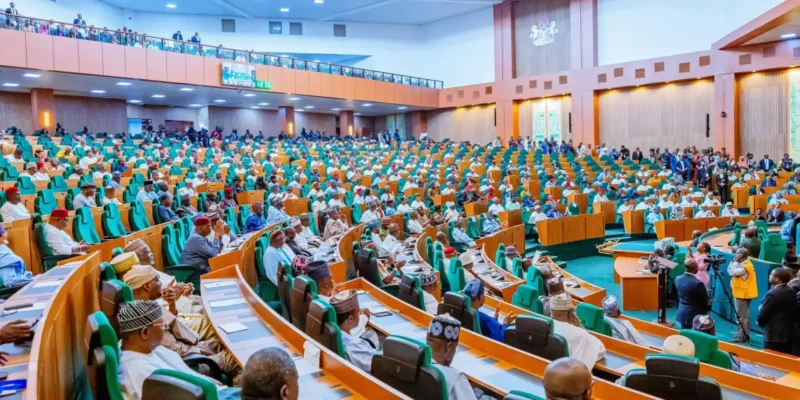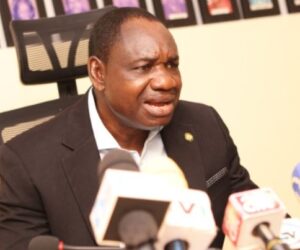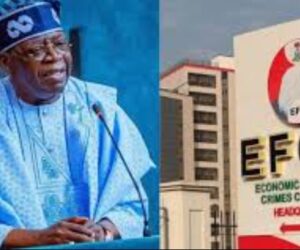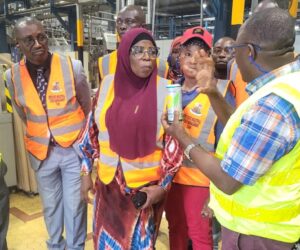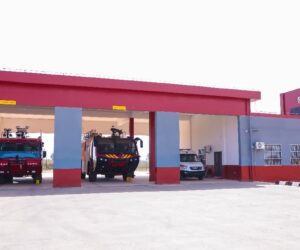1
Torkwase Nyiekaa
The House of Representatives has reopened one of Nigeria’s most notorious corruption sagas, the never-ending rehabilitation of the nation’s state-owned refineries, with a new investigation into the alleged misuse of over $18 billion reportedly spent on the facilities in the last twenty years, yet without a drop of refined product to justify the huge expenditure.
This decision followed the adoption of a motion titled “Non-Functionality of State-Owned Refineries” sponsored by Hon. Sesi Whingan (APC–Lagos) during plenary on Thursday.
The development comes amid widespread frustration over Nigeria’s continued dependence on imported fuel despite repeated promises of local refining capacity.
Under the resolution, the House will set up a joint investigative committee comprising the Committees on Petroleum Resources (Upstream and Downstream), Public Accounts, Anti-Corruption, Finance, and Legislative Compliance.
The panel is tasked with tracking how the funds meant for refinery rehabilitation were appropriated, released, and possibly diverted between 2010 and 2024, as well as assessing the current state of the four refineries located in Port Harcourt (two plants), Kaduna, and Warri.
Leading debate on the motion, Whingan expressed outrage at what he described as “monuments of waste and corruption,” lamenting that successive governments had squandered billions of dollars with no tangible outcome.
“How can we explain spending over $18 billion and still not refining a single litre of fuel?” he asked. “This goes beyond mismanagement, it is a profound betrayal of public trust. Nigerians deserve to know where their money went and why our refineries remain comatose.”
Whingan recalled that the problem dated back to 2007, when the Obasanjo administration sold the refineries to a consortium led by Aliko Dangote, a decision later reversed by the late President Umaru Musa Yar’Adua, who preferred government-led repairs.
“That reversal,” he said, “locked us in an endless loop of failure. Nearly two decades later, after billions of dollars in so-called rehabilitation, none of our refineries is functional.”
Thursday’s motion marked yet another attempt in a long line of failed legislative inquiries. In 2023, the House probed claims that ₦11.3 trillion had been expended on Turnaround Maintenance (TAM) projects between 2010 and 2020, while another investigation in mid-2025 yielded no public report.
“This House must make a difference this time,” Whingan declared. “If we fail to uncover the truth now, we will be complicit in this fraud. Nigerians have been deceived for too long.”
He also referenced recent public remarks by Dangote and Obasanjo, both of whom questioned why Nigeria continued to pour billions into dysfunctional refineries.
“Dangote, who built Africa’s largest private refinery, expressed disbelief that a country could spend this much and still produce nothing. It’s an indictment of our governance system,” he noted.
Whingan cited a July 10, 2025 interview granted by Engr. Bayo Ojulari, Group CEO of NNPC Limited, who admitted that none of the refineries was operational despite heavy investment, and hinted that the current administration might opt to privatize them.
“When even the NNPC chief distances the current government from past failures, it shows the depth of the decay,” Whingan said. “We cannot keep throwing good money after bad.”
The motion triggered a lively debate in the chamber. While some members argued that similar probes were already ongoing, others backed a joint investigation to ensure transparency and eliminate overlapping efforts.
“We can’t keep doing the same thing and expect different results,” one lawmaker remarked. “This probe must not be another empty ritual.”
Deputy Speaker Rt. Hon. Benjamin Kalu, who presided over the session, directed the new committee to report back within two weeks with concrete findings and recommendations, a timeline many Nigerians fear could end like the others, without accountability.
Political commentator Chidi Omeje described the latest probe as “another cycle in Nigeria’s culture of investigative futility,” cautioning that without political will, the effort would only deepen public disillusionment.
“We’ve watched this drama too many times,” Omeje told Daily Independent. “These committees rarely produce results, no prosecutions, no reforms, just political theatre to calm public anger.”
He added that the recurring investigations without consequences have become “part of Nigeria’s corruption machinery,” shielding vested interests that profit from the continuous importation of fuel.
Economists warn that the failure of Nigeria’s refineries has far-reaching consequences. With subsidy removal and a weakened naira, the reliance on imported fuel has worsened inflation and amplified the cost-of-living crisis.
“Every litre of imported petrol is a symbol of our collective failure,” Whingan concluded. “Nigeria’s economic future depends on ending this cycle of deceit, waste, and dependency once and for all.”

